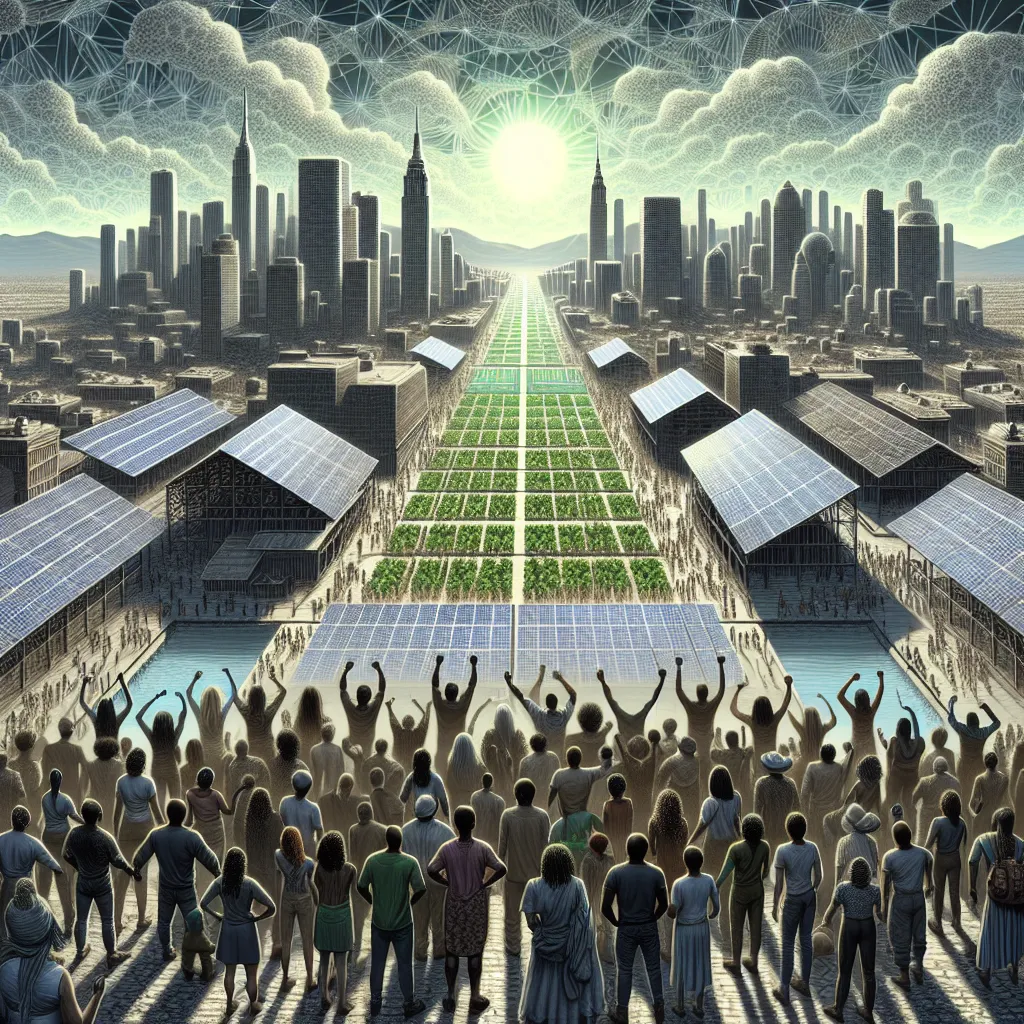Never before in history have we been so wealthy, advanced, and powerful. Yet, we’re feeling overwhelmed by rapid climate change. On the surface, it seems simple: greenhouse gases trap energy from the Sun, heating our atmosphere. This leads to warmer winters, harsher summers, and extreme weather. Ecosystems die, and rising oceans swallow coastal cities. So, why don’t we just prevent all that? Well, it’s complicated.
Public debates often focus on simple solutions like solar panels, biking, or switching to sustainable products. A huge part of the conversation is about personal responsibility. How can you change your lifestyle to prevent rapid climate change? But first, we need to understand the problem.
Modern industrial society, built over the last 150 years, is inherently destructive. Everything we do to make our lives easier and more comfortable harms the planet. The food we eat, the streets we walk on, the clothes we wear, and the gadgets we use all contribute to the problem. Emissions from landfills are as significant as those from jets. Running our homes releases more CO2 than all cars combined. Building a new car is equivalent to building just two meters of road. So, switching to electric cars isn’t enough if we keep building roads the same way.
Each part of the system needs its own unique solution, and many aren’t straightforward. Even when solutions exist, implementing them is a challenge. One major issue is the divide between rich and poor. Richer people cause more emissions, but 63% of global emissions come from low to middle-income countries, where people are just trying to escape poverty. Asking them to cut emissions seems unfair, especially when rich countries became wealthy by causing environmental damage.
Consider concrete. It produces 8% of global CO2 emissions. Stopping its use isn’t practical because it’s a cheap way for developing countries to build affordable housing. Rich countries also disagree on solutions like banning coal, gas, and oil due to debates on what should replace them. Solutions for food are even harder. With a growing global population, feeding everyone without emitting greenhouse gases seems impossible. Animal-based foods, despite being only 18% of calories, produce 57% of food emissions.
Technology like Direct Air Capture of CO2 could help, but it’s incredibly expensive, costing around ten trillion dollars per year. Getting the government to pay for it is tricky because resources are often tied up in subsidizing fossil fuels. Political systems aren’t doing a great job at becoming sustainable, and we don’t have time for experiments. We need immediate action to halt and reduce CO2 emissions.
Personal responsibility is often overemphasized. While individual actions like buying electric cars or reducing meat consumption are helpful, they pale compared to systemic emissions. The idea of a “personal carbon footprint” diverts attention from larger issues. If you eliminated 100% of your emissions for life, it would offset only one second’s worth of global energy sector emissions.
The problem feels insurmountable, leading to decision fatigue and moral burnout. So, what can you actually do? Our perspective emphasizes systemic changes. We need to influence politicians to care about climate change, vote for science-respecting leaders, and hold them accountable for effective policies. Industries must be pressured to change through laws and incentives, balancing profit interests with the need to reduce emissions.
While it’s unrealistic to expect quick global changes, demand for low-carbon solutions will drive technological advancements. If you can afford it, invest in green technologies to lower future costs. Vote at the ballot and with your wallet. Accept that everyone will be unhappy with some aspects of changes but recognize it’s necessary for progress.
In the end, you can still reduce your meat intake, fly less, or buy an electric car. Not out of guilt, but as part of a collective effort for systemic change. Every small action contributes to a larger movement.






